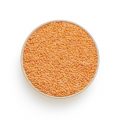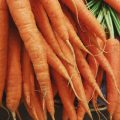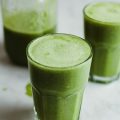Given the situation that there is so much written about “food” in the blogsphere, it is a funny fact that nobody puts the question what “food” actually is. Silly to ask that? Well, not quite, because, probably to your surprise, there is no such thing as “food”. Yes, you have read that correctly: “Food” per se does not exist.
At least, is does not exist as something (or rather some thing) that holds intrinsic purport. Rather, it is a concept that has to be construed and filled it with meaning. For this reason, I will put the term into quotation marks during the course of this post.
To see how to get to this conclusion – the ontological non-existence of “food” – let us start with some very basic thoughts about what “food” actually is about, like, a minimal definition of “food” that aims towards the very essence and meaning of the word, or, put in another way, an idea about what everything that is usually called “food” has in common. An idea to begin with might be this one.
“Food” is something to eat.
Pretty obvious , but not trivial, as you can see from the following deliberation: Although all “food” is something to eat, not everything to eat is “food”. You could also “eat” (read: swallow) a piece of glass, for example. Just because you “eat” a piece of glass, this does not mean at all that it was “food”. So we need a narrower definition.
“Food” is something that, when swallowed, is in some way processed by the body.
Here things are getting difficult already, because there are substances contained in (so-called) “food” that are not processed by the body, like fibers. (It is rather usual, for example, to deny a certain vegetable the status of “food” because it contains fiber, or speak of it as half “food”, half “non-food”. People want for definitions that account for the whole thing.) Also, there are things that are processed by the body and still would not be called “food”, like paper or other things that do not simply pass the body without being altered in some way. So let us try another, yet narrower definition.
“Food” is something that, when swallowed, is processed by the body in a way that it provides or supports nourishment of the body.
With this definition, we are almost getting into the waters of teleology, because it implies that there is a certain purpose that is pursued by eating “food”. To follow this line of reasoning, I would like to introduce two German terms, since there are no actual equivalents in English. (This is why German has sometimes been called the “language of philosophy”.) These terms will hopefully provide a better understanding of the conceptual differentiation I am aiming at in the following.
The first term is Lebensmittel which could simply be translated as “food”. However, the actual concept of Lebensmittel – which becomes clear when translated literally into English – refers to “means for living”. This tells us that “food” in the sense of Lebensmittel is something that contributes to and supports living or proper functioning of the body.
The second term is Genussmittel which can be translated as “means for pleasure”. When I inserted Genussmittel into the online English-German dictionary, the translations I got were “luxury food” and “drink and tobacco”. Apparently, there is no single English word that captures the concept of Genussmittel independently from “food” (note that, in German, Genussmittel are not necessarily related to, and therefore somewhat conceptually differrent, from Lebensmittel, i.e., “food”). The second expression is merely a translation via instance (so no actual translation).
While drink (alcohol) and tobacco are usually considered as belonging to the category of Genussmittel, it is clear that they do not have anything to do with what we are actually interested in – “food” in the sense of Lebensmittel, or “means for living” – because they do not contribute to proper functioning of the body so much, and tobacco, especially, is not even “eaten” (or swallowed) usually, so it already fails to satisfy the first (minimal) definition of “food” since it is nothing to “eat”.
Back to “food”. Sticking to the original concept, we can say that the main function of “food” is nourishment for the body. This is important to realize, as well as the fact that nourishment does not necessarily have to do with pleasure by fine taste. (In the happy case, these two things go together, though.) We can conclude from this thought that all nourishing “food” (an expression that appears to be a pleonasm now) is also healthy – otherwise is would not be nourishing. So far, we can say that there might be no essential common ground of “food”, but we can give a functional definition of it because all “food” serves (at least when going with the original understanding of the concept) the same purpose, namely nourishment. But remember that this definition does not say anything about whether the same kinds of “food” provide nourishment equally or at all to different persons. (They do not.)
So far, the discussion was about “food” as seen from the level of the individual, where it mainly serves nourishing purposes. What makes the whole situation somewhat more complex is the fact that, on a superior level, there is also a social discourse about food going on, permanently defining and re-defining what is to be considered as “food”. This means that we are dealing with “food” in two different regards now: On the one hand, we have a concept that has to be defined at the level of the individual and account for individual nutritional needs – this will vary across persons because everybody has different needs, and it may also vary within persons when there are changes in nutritional needs over time. On the other hand, we have a socially construed category of what is considered “food” in general. The first depends on physiologies of individuals, the latter on culture and social norms.
This also means that, in the latter respect, the borders of the concept of “food” are not a definite as it may seem. Rather, we are dealing with a somewhat fuzzy category. During the course of time, certain items have been newly included into or dropped out of this category, and its content also depends on cultural peculiarities. For example, sugar was very hard to get until just a few decades ago and people did not eat it often, but nowadays many products that contain sugar are generally considered as “food”. Red wine and dark chocolate have found to have positive effects on health when consumed in moderate amounts and may thus be incorporated into the “food” category. Many items that are too unfamiliar or associated with disgust, like insects, are not considered “food” by many people, but certainly are by other people who are used to them.
So we find what is called “food”, in general understanding, mostly depends on availability, general affordability, economical reasoning on the side of “food” industry about what is to be produced in which amounts and sold at which costs, “food” fashions, eating ideologies, cultural traditions, and scientific evidence, and this is often detached from individual nutritional needs. The broadest definition of “food” that may be given in this (socially determined) regard could be this one.
“Food” is something you can swallow without immediately dying of it.
This sounds a little cynical indeed, but during the course of evolution there maybe has been nothing that humans have never tried to eat. Trial and error, from the very beginning.
So what comes out of this in the end? “Food” can either be understood in the terms of a socially defined, somewhat arbitrary concept that is so broad that almost everything could be labelled as “food”, so it tells us nothing. Or, “food” can be defined with regard to the specific need profile of an individual person which actually means that “food” is something different for every single being, and there is nothing like “food” in general.
Does this mean that we should stop talking, writing, or blogging about “food”, because there is nothing meaningful we could refer to? Not at all! “Food” is work in progress, the result of constant discourse and experimenting what is good for you. “Food” is an adventure, a journey on which a lot is to be discovered. Everybody has her or his share in this adventure, and everybody is responsible to contribute in a way that hopefully supports a conversion of the separate aspects under which “food” can be looked at, and helps to achieve an accordance between the levels of society and individual persons as far as “food” is concerned.
So please go on blogging about “food”! Please go on keeping the discourse running, and being a wonderful source of (culinary) inspiration! But have the courage to define for yourself what exactly “food” is. The appropriate point of reference for this definition is your individual body, with all its peculiar needs and preferences. Try things out. Do what works for you, and do not be insecure about what your body tells you. There is no outside warrant to judge if you are right or wrong, because it is a totally personal affair what to put into your body.









